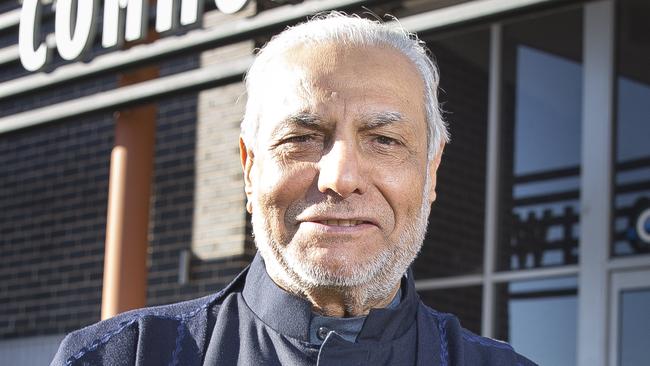Grand Mufti seeks Racial Discrimination Act cover for Muslims
Australia’s Grand Mufti has called for Muslims to get the same protection as ethnic groups under section 18C.

Australia’s Grand Mufti has called for Muslims to be given the same protections as ethnic groups under section 18C of the Racial Discrimination Act, saying the law must be “strengthened”, not weakened, in the interest of minorities.
The push to broaden the act is already drawing criticism from conservative government MPs, with one Liberal senator warning it would be tantamount to creating a “national blasphemy law”.
Ibrahim Abu Mohammed, the Grand Mufti since 2011, has added his voice to a growing backlash from community, religious and ethnic groups against reforming section 18C, in a campaign that will test Malcolm Turnbull’s resolve to change the law.
In his submission to the freedom-of-speech inquiry, which the Prime Minister ordered to examine 18C and the role of the Australian Human Rights Commission, Dr Mohammed says any “watering down” of the law would “expose” minority groups — especially Muslims — to discrimination, vilification and hate speech.
He also recommends amending the act to include the prohibition of religious vilification to cover Muslims and all religions, in accordance with article 20 of the International Covenant on Civil and Political Rights.
Victorian Liberal senator James Paterson, a member of the parliamentary joint committee on human rights inquiring into 18C, slammed the idea as “very dangerous”. “Effectively that would mean Australia has a national blasphemy law because criticising someone’s religious beliefs in a way that offended them could breach the law.
“That would mean legitimate criticism of religion or religious beliefs could become unlawful in Australia,” Senator Paterson said.
“Religion shouldn’t be off limits for public criticism and debate, and widening this law would mean atheists, who often ridicule religious beliefs … would effectively be stopped from criticising religion.”
As the committee prepares to embark on hearings nationwide, The Australian can reveal there is some scepticism within government ranks that the inquiry process can produce a clear and workable path towards reform.
It is illegal under section 18C to offend, insult, humiliate or intimidate a person on the basis of race, colour, or national or ethnic origin. The AHRC says “ethnic origin” has been broadly interpreted in several jurisdictions to include Jewish and Sikh people but does not cover Muslims as the faith is widespread and across many nations and languages.
It can consider claims of racial hatred made by Muslims “if on the face of the information they have provided it appears the act of racial hatred is connected to their race, colour, or national or ethnic origin”.
But if a person alleges that they have been subjected to hate speech “solely on the basis of their Muslim identity in an area outside their employment”, the AHRC would say their concerns were not covered by the act.




